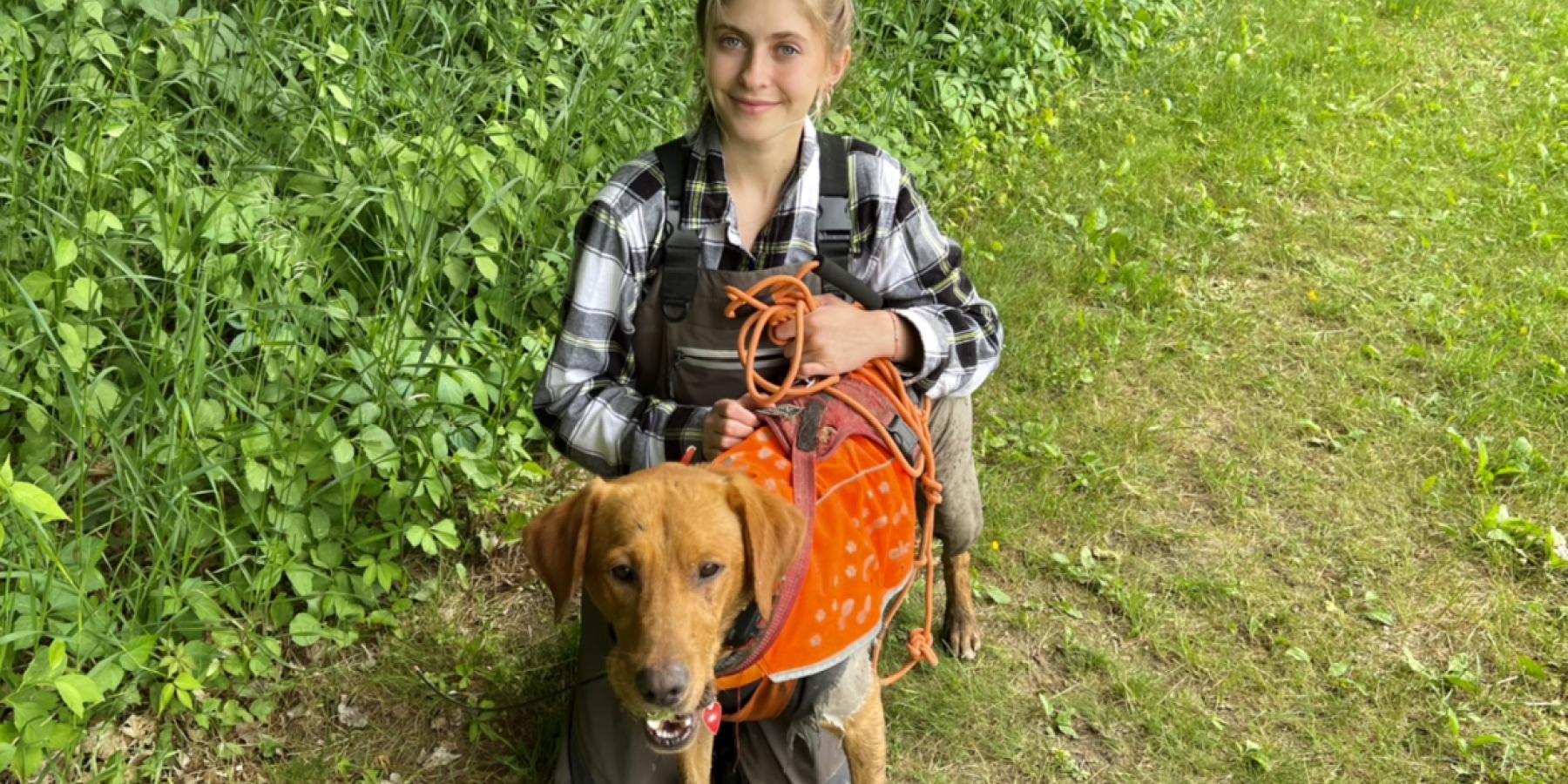
Domestic dogs, with their complex olfactory system, are used for a variety of detection work. The application of detector dogs for wildlife data collection is extremely beneficial in areas where traditional methodologies, such as visual encounter surveys, may not be efficient. In many research projects involving these canines, the dog handlers belong to consulting agencies and are not tasked with publishing methodologies.
The goal of this pilot project was to train a Labrador Retriever to find wood turtles (Glyptemys insculpta) and box turtles (Terrapene carolina carolina) and collect observational data on what methodologies would best optimize future canine surveys.
Throughout the duration of this project, the dog team conducted 17 surveys along 8 transects throughout the state of Rhode Island. Each transect consisted of a 1 km stretch down each bank of a river, while weaving within 25 m from the bank into the surrounding habitat. The Labrador alerted to 13 of 21 observed wood turtles before they were seen by people (n=2) and contributed to the detection of the remaining turtles by leading people into the areas where they eventually spotted the turtle first. The dog also alerted to eight of the nine box turtles before they were seen by people.
Upon the conclusion of these surveys, the methods determined to benefit canine surveys the most include, handlers conducting dogless scouting walks along the transects, avoiding areas that will not be productive to search (e.g. non-habitat and areas where the dog must swim), and freedom to include open areas adjacent to the transect where scent might move freely. Gear for the dog should include chest and paw protection. We encourage the development of protection for ear tips, the dorsal surface of the muzzle, and against ticks. Handlers should have multiple brightly-colored toy rewards on hand to replace those that become lost or broken. We further recommend generating a dog specific survey protocol and schedule to optimize the dog’s work drive and allow short days and rest days. All turtle data collected from these surveys was distributed to our Rhode Island collaborators (University of Rhode Island, Rhode Island DEM, Roger WIlliams Park Zoo, and Rhode Island Natural History Survey) to be included in their data on these two species of turtles.
